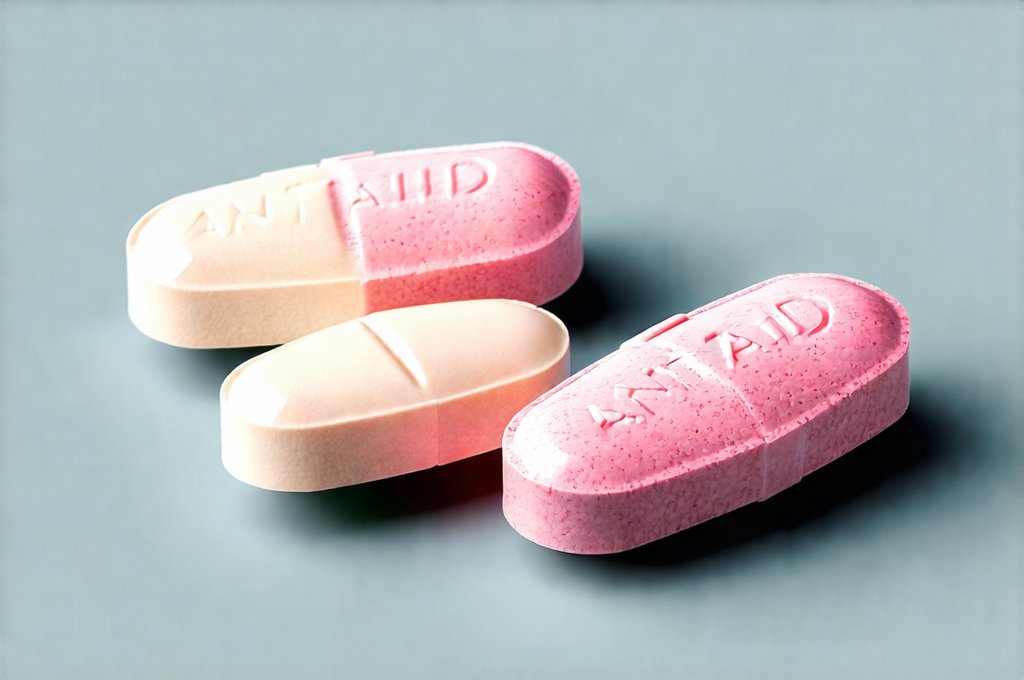Bloating is an incredibly common complaint, affecting millions of people worldwide. It’s often dismissed as a minor inconvenience—something we chalk up to eating too fast, stress, or “just one of those days.” But for many, bloating isn’t fleeting; it’s persistent, uncomfortable, and significantly impacts quality of life. While dietary adjustments are frequently the first line of defense against bloat, a surprising culprit often lurks in medicine cabinets: antacids. We readily reach for these over-the-counter remedies to neutralize stomach acid, believing we’re alleviating digestive distress, but inadvertently, they might be exacerbating the very problem we’re trying to solve, or even creating new ones.
The widespread use of antacids is understandable given our increasing awareness of heartburn and acid reflux. However, digestion is a complex process, relying on a delicate balance of acidity throughout the gastrointestinal tract. Reducing stomach acid isn’t always the answer; in some cases, it can disrupt this essential equilibrium, leading to consequences beyond simple symptom relief. This article will delve into how antacids might be contributing to your bloating, exploring the underlying mechanisms and offering insights into alternative approaches for managing digestive discomfort. Understanding these connections empowers you to make informed decisions about your health and potentially find long-term solutions that address the root causes of bloat rather than merely masking the symptoms.
The Acid Connection: Why Stomach Acidity Matters
Antacids work by neutralizing stomach acid, primarily hydrochloric acid (HCl). While this provides temporary relief from heartburn, it also fundamentally alters the digestive environment. HCl isn’t simply about burning food; it plays a crucial role in several essential processes. – Breaking down proteins into amino acids – making them usable by the body. – Activating pepsin, an enzyme necessary for protein digestion. – Killing harmful bacteria that enter through food. – Signaling the release of pancreatic enzymes and bile from the gallbladder further down the digestive tract.
When stomach acid is consistently neutralized, these processes become less efficient. Reduced acidity can lead to incomplete protein digestion, allowing undigested proteins to ferment in the gut – a major contributor to bloating and gas production. Furthermore, a decrease in HCl weakens the body’s natural defense against harmful bacteria, potentially leading to small intestinal bacterial overgrowth (SIBO), another well-known cause of bloating. This creates a vicious cycle where antacid use diminishes acidity, fostering an environment for bacterial imbalance and increased fermentation, which then prompts more antacid consumption.
The impact isn’t limited to the stomach itself. The lower digestive tract relies on proper pH levels for efficient function. A less acidic stomach means food arrives in the small intestine with a different pH balance, potentially hindering enzyme activity and disrupting nutrient absorption. This can cause food to sit longer in the intestines, fermenting and causing discomfort. Ultimately, suppressing acid isn’t always the answer; it’s often about managing acidity effectively. Understanding how weekend habits impact your gut can help too!
The Ripple Effect: Beyond Stomach Acid & Intestinal Bacteria
The consequences of antacid use extend beyond just altered digestion and bacterial imbalances. Antacids can impact gut motility – the movement of food through the digestive system. Some formulations contain magnesium or aluminum, which can have laxative or constipating effects respectively. These disruptions in bowel habits contribute to bloating, either by speeding up or slowing down digestion. Constipation, in particular, allows for increased fermentation and gas production as waste remains in the colon for longer periods.
Furthermore, long-term antacid use might reduce the stomach’s natural ability to produce acid over time. The body adapts to the reduced acidity, potentially leading to hypochlorhydria (low stomach acid), even when you stop taking the medication. This can create a dependency on antacids and further exacerbate digestive issues. It’s important to remember that many common symptoms attributed to “too much” acid are actually caused by low stomach acid or other underlying conditions like hiatal hernia or esophageal dysmotility. The body’s natural response to perceived acidity is often more nuanced than simply needing neutralization.
Finally, certain antacids contain calcium carbonate. While seemingly harmless, excessive calcium intake can sometimes lead to constipation and contribute to mineral imbalances that affect digestion. This isn’t necessarily a problem for everyone, but it’s another potential factor to consider if you’re experiencing chronic bloating. The key takeaway is that antacids aren’t always benign solutions; they have the potential to disrupt the delicate balance of your digestive system in multiple ways. For some, evening tea might contribute to discomfort as well.
Identifying Antacid-Related Bloating
Distinguishing between bloating caused by antacids and other factors can be challenging, but certain clues can help you identify a possible connection. Consider these points:
– Timing: Does your bloating consistently occur after taking an antacid?
– Severity: Is the bloating worse when you’re using antacids regularly compared to when you’re not?
– Associated Symptoms: Do you experience other symptoms like constipation, diarrhea, or changes in bowel habits alongside the bloating?
If you suspect that antacids are contributing to your bloat, a careful self-assessment is a good starting point. Keep a detailed food and symptom diary for a week or two, noting when you take antacids, what you eat, and how you feel afterward. This can reveal patterns and help you determine if there’s a clear correlation between antacid use and your bloating.
Another helpful step is to try an elimination diet – temporarily removing antacids from your routine (under the guidance of a healthcare professional) to see if symptoms improve. This should not be done abruptly, especially if you’ve been taking antacids for a long time, as suddenly stopping can lead to rebound acid production. Instead, gradually reduce your dosage and monitor your symptoms closely.
Alternatives to Antacids: Addressing the Root Cause
Instead of simply neutralizing stomach acid, focus on addressing the underlying causes of digestive discomfort. Here are some strategies to consider:
1. Dietary Modifications: Identify and eliminate food triggers that contribute to bloating, such as gluten, dairy, FODMAPs (fermentable oligosaccharides, disaccharides, monosaccharides, and polyols), or highly processed foods.
2. Mindful Eating: Practice mindful eating techniques like chewing your food thoroughly, eating slowly, and avoiding distractions during meals. This aids digestion and reduces the likelihood of overeating.
3. Stress Management: Chronic stress can significantly impact digestive health. Incorporate stress-reducing activities into your routine, such as yoga, meditation, or deep breathing exercises.
Beyond lifestyle adjustments, consider exploring natural remedies that support healthy digestion. Digestive enzymes can help break down food more efficiently, reducing the burden on your stomach. Probiotics promote a healthy gut microbiome, which is essential for optimal digestive function. However, it’s crucial to choose high-quality probiotic strains specifically tailored to your needs. Understanding gut bacteria imbalance can be a helpful step.
When to Seek Professional Help
While these strategies can be helpful for managing mild bloating, it’s important to seek professional medical advice if your symptoms are severe or persistent. Do not self-diagnose or attempt to treat serious digestive conditions without consulting a healthcare provider. A doctor can help rule out underlying medical conditions like irritable bowel syndrome (IBS), SIBO, celiac disease, or gastroparesis, which may require specific treatment plans.
If you’re considering coming off antacids, do so under the supervision of your doctor. They can provide guidance on how to taper off medication safely and address any potential rebound acid production. A healthcare professional can also recommend appropriate tests to assess your stomach acidity and gut health, leading to a more personalized treatment approach. Remember that digestive health is complex, and finding the right solution often requires a collaborative effort between you and your healthcare team. GERD can significantly impact activity levels, so it’s important to address it effectively. Finally, remember that even when managing these issues, you can still stay social. Also consider how to adjust your diet during travel to minimize disruptions.


















